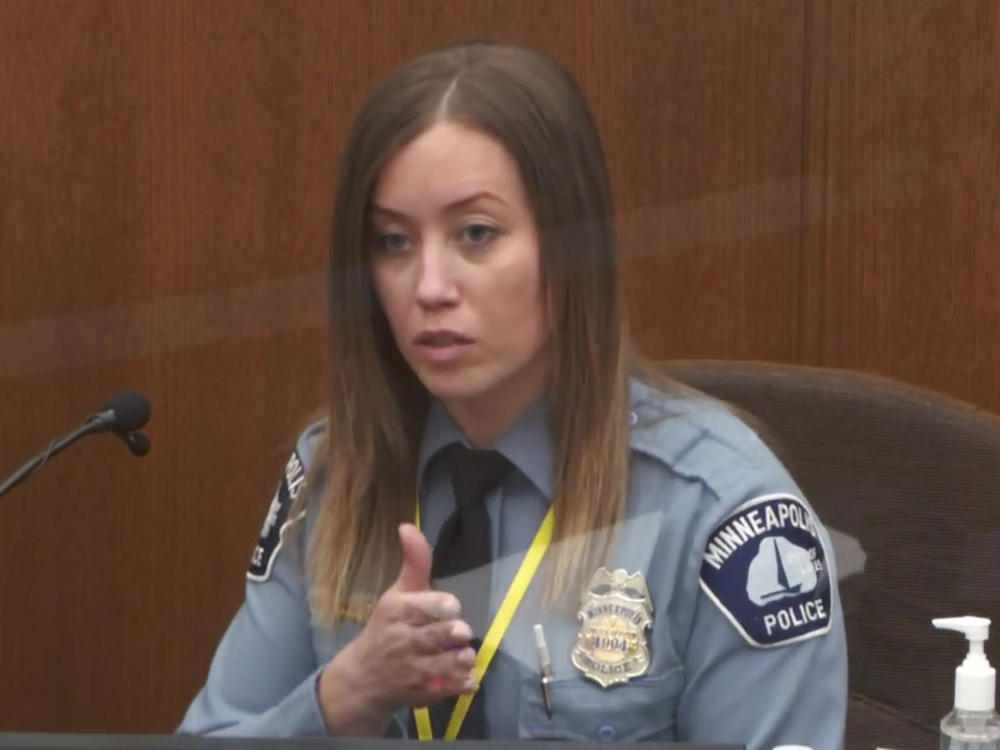Section Branding
Header Content
Police Expert Testifies About Medical Support In Trial Of Derek Chauvin
Primary Content
Updated April 6, 2021 at 4:49 PM ET
Officer Nicole Mackenzie, the medical support coordinator with the Minneapolis Police Department, was the third witness called on Tuesday afternoon in the trial of Derek Chauvin.
Chauvin is facing charges of murder and manslaughter in George Floyd's death last May.
Mackenzie, who trains officers in medical support, was asked by defense attorney Eric Nelson about "agonal breathing," which can occur in people in distress such as a medical emergency.
Mackenzie explained that agonal breathing is not effective breathing, but rather irregular gasps for air.
Nelson asked if it can be confused with effective breathing.
"It can be easily confused with real breathing, so that's why we teach 'This is not effective breathing,' " Mackenzie said.
Nelson asked whether "certain circumstances where there's a lot of noise, or a lot of commotion" would make it more likely that an officer might misinterpret agonal breathing with effective breathing.
"Yes," Mackenzie replied.
Prosecutor Steve Schleicher asked Mackenzie whether officers are taught "that if a person can talk, that means that they can breathe?"
"No, sir," Mackenzie replied.
Why not?
"That would be incomplete to say, because there is a possibility somebody could be in respiratory distress and still being able to verbalize it. Just because they are speaking does not mean they are breathing adequately," she said.
Schleicher also followed up on the notion raised by the defense, and confirmed by Mackenzie, that a hostile crowd could make it more difficult for someone to render medical aid.
"Do the activities of a group of onlookers excuse a police officer from the duty to render emergency medical aid to a subject who needs it?" Schleicher asked.
Mackenzie replied: "Only if they were physically getting themselves involved, I would say."
"If the officer was physically prevented from doing it?" Schleicher asked.
"Yes, if an officer was being physically assaulted," Mackenzie said.
Mackenzie was dismissed for the day and asked to return next week during the defense's portion of the trial.
Copyright 2021 NPR. To see more, visit https://www.npr.org.

